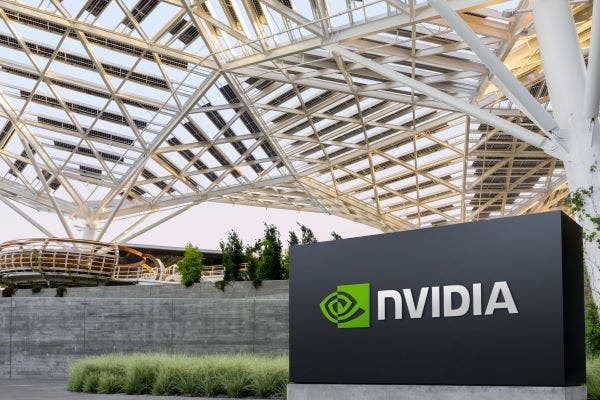Nvidia Expands AI Cloud Capabilities With Fourth Acquisition This Year
by nlqip

The latest startup acquired by Nvidia is Brev.dev, which helps AI developers find the most cost-effective GPU compute across cloud providers. This comes after Nvidia acquired two other startups with the explicit purpose of expanding the capabilities of its DGX Cloud service.
Nvidia has bought a startup that helps AI developers find the most cost-effective GPU compute across cloud service providers, making it the AI chip giant’s fourth acquisition this year.
An Nvidia spokesperson confirmed to CRN on Tuesday that it acquired Brev.dev, a San Francisco-based startup that provides an AI and machine learning development platform for building, training and deploying models on CPU- and GPU-based cloud instances.
[Related: Analysis: As Nvidia Takes AI Victory Lap, AMD Doubles The Trouble For Intel]
Financial terms of the deal were not disclosed.
“Brev’s goal is to build the easiest way for AI/ML developers to use a GPU,” the startup said in a LinkedIn post this week. “Teaming up with Nvidia means being able to deliver on that mission by pairing the most powerful hardware with the industry -eading software.”
Outlined on its website, Brev.dev lists Nvidia, Intel and Amazon Web Services as official partners and says its platform serves as a “single interface between AWS, [Google Cloud Platform], Fluidstack and other GPU clouds.” This, according to the startup, allows developers to find instances based on costs and availability.
While Nvidia has provided GPUs to cloud service providers for more than a decade, the company in recent years has sought to make a larger business around cloud infrastructure—a hot spot for AI development—through a growing portfolio of software and services.
Most notably, the company last year launched DGX Cloud, a service that runs on top of cloud service providers like AWS and gives enterprises quick access to the tools, support and GPU-powered infrastructure they need to create and run generative AI applications. The starting price for the service is $19,699 a month with a one-year commitment for a single A100-based node.
Two of the acquisition deals Nvidia made earlier this year were explicitly done to build out the capabilities of its DGX Cloud service.
In late April, the company announced it had reached a deal to acquire Israel-based AI infrastructure management startup Run:ai. The startup provides Kubernetes-based workload management and orchestration software, which Nvidia said it plans to use to drive its DGX Cloud business and enhance the capabilities of DGX and HGX server customers.
Multiple reports said the Run:ai deal was valued at around $700 million.
Earlier this month, Nvidia acquired Shoreline.io, a Redwood City, Calif.-based startup founded by a former AWS executive that provides software for automatically fixing issues in data center infrastructure. The deal was confirmed by the startup, and one of its investors said Shoreline’s team was joining the DGX Cloud unit. The deal was reportedly valued at about $100 million.
The other acquisition Nvidia made this year was another Israeli startup called Deci, which makes software that can speed up the inference of AI models while retaining accuracy on any hardware. The deal was reportedly valued at approximately $300 million.
Source link
lol
The latest startup acquired by Nvidia is Brev.dev, which helps AI developers find the most cost-effective GPU compute across cloud providers. This comes after Nvidia acquired two other startups with the explicit purpose of expanding the capabilities of its DGX Cloud service. Nvidia has bought a startup that helps AI developers find the most cost-effective…
Recent Posts
- A Vulnerability in Apache Struts2 Could Allow for Remote Code Execution
- CISA Adds One Known Exploited Vulnerability to Catalog | CISA
- Xerox To Buy Lexmark For $1.5B In Blockbuster Print Deal
- Vulnerability Summary for the Week of December 16, 2024 | CISA
- Arm To Seek Retrial In Qualcomm Case After Mixed Verdict
